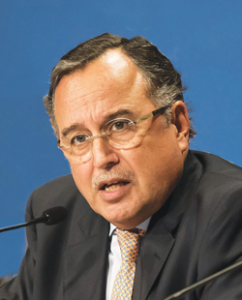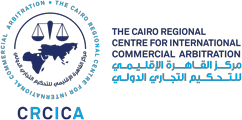Board of Trustees (BoT)
CRCICA has a Board of Trustees (BoT) consisting of ten (10) members at least and thirty (30) members at the most appointed in consultation with AALCO from amongst eminent African and Asian personalities specialized in the fields of international arbitration, law, business, trade, investment and international relations.
The BoT may include up to 20% of its members from outside the Afro-Asian Region from amongst figures specialized in the aforementioned fields. The composition of CRCICA’s current Board of Trustees is showed below.
The term of the BoT is four years, which may be renewed once for a similar term, unless otherwise determined due to special circumstances. The BoT carries out the functions provided for in the By-laws of the Board of Trustees. This includes meeting once a year to oversee CRCICA’s caseload and in particular the following functions:
- Appointing the Director of the Centre in consultation with AALCO for a four-year term, which may be renewed once for a similar term, unless otherwise determined due to special circumstances;
- Setting down the general policy for achieving the objectives of the Centre; and
- Ratifying the Auditor’s report for each fiscal year.

H.E. Ambassador Nabil Fahmy
Nabil Fahmy is a prominent figure in Egyptian diplomacy and academia. A career diplomat for over three decades (1976-2011), he served as Egypt’s Foreign Minister during a critical period (2013-2014). During his tenure, he played a key role in reshaping Egypt’s foreign policy, ensuring a wider range of options on both regional and global stages.
Fahmy’s diplomatic career encompassed prestigious roles like ambassador to the United States and Japan. His expertise focused on crucial issues like international security, disarmament, conflict resolution, and Arab-Israeli diplomacy. He actively participated in numerous international forums, including the UN’s disarmament advisory board and the first committee on disarmament.
Beyond diplomacy, Fahmy is a distinguished scholar. He founded the School of Global Affairs and Public Policy (GAPP) at the American University in Cairo, establishing it as a leading institution for addressing contemporary issues like public affairs, law, journalism, and regional studies. He served as its founding dean for over a decade.
Fahmy’s commitment extends to authorship. His recent book, “Egypt’s Diplomacy in War, Peace, and Transition,” aims to educate future generations about the complexities of statecraft in the past five decades. He has also published an updated Arabic book titled “From the Heart of Events.”
In essence, Nabil Fahmy’s career reflects a dedication to diplomacy, scholarship, and knowledge sharing. He has significantly shaped Egyptian foreign policy, nurtured academic excellence, and continues to contribute valuable insights through his writings.

